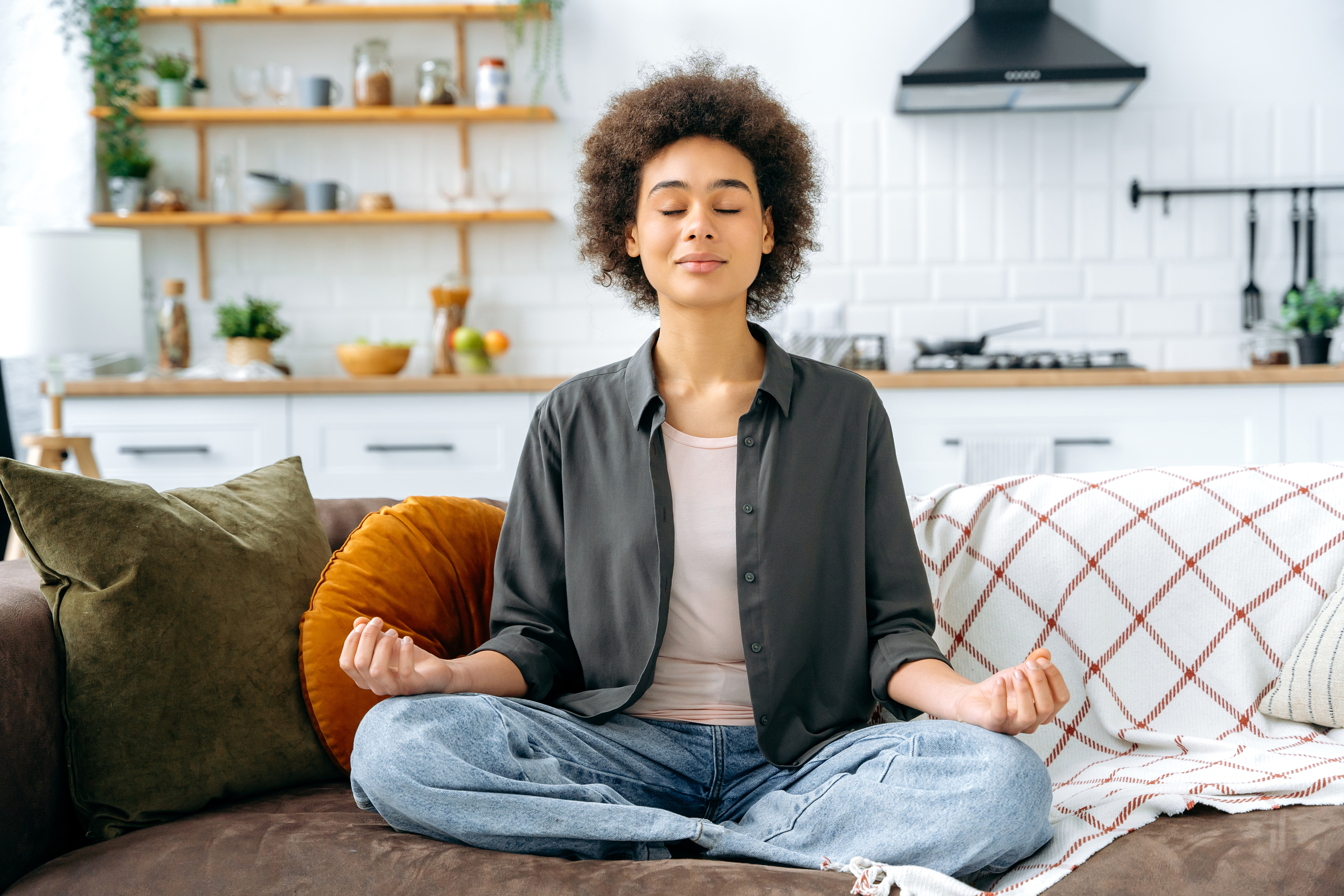Research shows that most resolutions don’t stick, but a healthier, happier new year doesn’t have to hinge on sweeping promises.
The new year often feels like the perfect opportunity for a fresh start—a time to set ambitious resolutions that promise to transform our health and lives. But here’s the catch: research shows that most resolutions don’t stick. By February, they’re often abandoned, leaving behind feelings of guilt or failure that can make us wish we hadn’t made them at all.
But a healthier, happier new year doesn’t have to hinge on sweeping promises. Instead, by focusing on small changes, we can channel that motivation for renewal into actions that truly last. Over time, these small shifts add up, helping us reach our bigger goals sustainably and with less pressure.
Ready to start small and aim big? Here are 25 tiny changes you can begin today to set the foundation for a healthier, more fulfilling 2025—and beyond.
1. Add a new vegetable to your plate.
Try something new at the grocery store (kohlrabi, anyone?) or farmers market. Or toss something green on your plate when you wouldn’t normally — say, a salad instead of toast with your scrambled eggs. Whip up these creamy dips and dunk vegetables in it for a snack.
2. Take a deep breath.
Taking slow, deep breaths can help reduce stress, and it also improves your health in other ways. It can lower blood pressure, increase lung endurance, improve immunity, and boost your mood. Here’s a deep breathing exercise that’s simple to remember, which you can employ at any time.
Pro tip: Set an alarm on your phone to remind you to take some deep breaths a few times a day.
3. Say something nice.
The “helper’s high” is the act of being kind to one another, which leads to a feeling of satisfaction. Acts of kindness reduce stress and anxiety, diminish pain, lower blood pressure, and boost both your mood and the recipient’s. A gesture as small as paying someone a genuine compliment counts.
4. Get some daylight in the morning.
Light is the signal to our brains that it’s time to wake up and be alert. Getting daylight into your eyes first thing sets your circadian rhythm, making you more alert during the day and better able to sleep at night. Step outside first thing in the morning if you can, or just stand by a window. If you wake up before the sun, turn on a bright light for the same effect.
5. Hydrate first thing.
So many of us reach for coffee first thing, but having a glass of water upon waking is a better idea. Water helps us wake up, get the blood flowing, and dilute stomach acid. All important functions, especially after hours of sleep leave us dehydrated.
6. Take a walk after dinner.
Resist the urge to sink into the couch after dinner. Instead, take a walk. Even 10 minutes makes a difference. Walking after eating helps regulate blood sugar regulation and can boost your energy. Plus, short bursts of exercise throughout the day add up, so even if you don’t have time for a workout, those bits of walking count.
7. Be grateful.
Something you can do in 2 minutes that has the potential to make you happier, more likely to help others, and more satisfied with your life? Yes, please. It’s as simple as taking the time to be grateful. Write down 3 things you feel grateful for once a day, or make gratitude a topic of conversation at the dinner table.
8. Read for fun.
Take a break from work and Netflix and curl up with a good book. Reading for pleasure correlates with better sleep, reduced anxiety, improved creativity, and increased empathy. If you’re having trouble making the time to sit down to read, listen to an audiobook while you take a walk or drive.
9. Call a friend.

Human beings need connection. Socializing helps combat loneliness, sharpens memory, boosts cognitive skills, and fosters an overall sense of well-being. If you’re feeling isolated, reach out to a friend or loved one. A phone or video call can provide that much-needed sense of connection. Consider scheduling regular catch-ups with friends to create a routine that keeps everyone feeling supported and uplifted.
10. Pet a pet.
Research shows that just 10 minutes of interaction with a pet can reduce stress. Plus, if you’re walking a dog, that’s a few times a day that you’re getting some activity and fresh air, too. If you don’t have one of your own, offer to help out a friend or neighbor and walk theirs.
11. Take a bath.
Taking a bath is one of the most pleasurable forms of self-care. Bonus points for adding Epsom salts to the water; they contain magnesium, which can help with everything from headaches and menstrual cramps to muscle soreness and constipation.
12. Eat some gut-friendly foods.
Gut health is an important topic of conversation. Linked with immunity, metabolism, mood, sleep, and disease prevention, a healthy microbiome is important. To get your gut in fighting shape, enjoy fermented foods like yogurt, sauerkraut, and miso.
13. Meditate for a minute.

People have been meditating for thousands of years, and no wonder: It can lower blood pressure, reduce stress and anxiety, help with focus and concentration, and so much more. Even just one minute can help, though making time for 10 to 15 minutes is even better.
14. Do a set of two.
If getting stronger is one of your goals, commit to doing a set of two of something each day: two push-ups, sit-ups, or squats. You may do more, but you don’t have to. According to Stanford behavior scientist Dr. BJ Fogg, author of Tiny Habits, committing to something small means you’ll keep it up even when your motivation wanes, and that’s what helps you maintain it over time.
15. Go to bed 15 minutes earlier.
Bedtime procrastination, i.e. staying up late when we know we need to get to bed, is a common problem. Rather than trying to convince yourself to get into bed hours earlier, make it just 15 minutes. When that time becomes your new normal, move it up 15 minutes again. The goal is to have a regular bedtime that will net you the optimal 7 to 9 hours of sleep per night. This gradual change can get you there.
16. Clean up your beauty routine.
Just as you read food labels, you should be doing the same with your beauty products. Look for brands and products with ingredients you recognize, or use an app like Think Dirty, which lets you scan products with your phone and gives you ratings, as well as suggestions for cleaner options where applicable.
17. Season your food.
Herbs and spices make food taste better, which is reason enough to use them, but they also bring numerous health benefits. Some reduce inflammation, some boost heart health, and others fight cancer, but rather than trying to tease out which ones play which role, use a wide variety for maximum benefits. If you’re not sure where to start, buy some seasoning blends, such as Italian seasoning, herbs de Provence, curry powder (yep, it’s a blend), and za’atar.
18. Have a mocktail.
Many of us found ourselves drinking more during the pandemic. No judgment here — but know that cutting back can help you sleep better, improve your mood, boost your energy and focus, and improve your long-term health. Try instituting drink-free days (starting with just one a week), incorporating lower-alcohol drinks or mocktails during your normal drinking times, and using leftover wine in recipes instead of sipping it.
19. Break out the cast iron skillet.
One of the easiest ways to boost your health without even trying is by using your cast iron skillet. Simply cooking some of your regular meals in it instead of another pan can add a significant amount of iron to your food. Lack of iron causes anemia, which can lead to fatigue, feeling cold, headaches, and more.
20. Laugh every day.

Aside from being fun and making life more enjoyable, laughter has real health benefits. It increases your oxygen intake, which helps your heart, lungs, and muscles, and causes a release of feel-good endorphins. Long-term, regular laughter can help boost immunity, relieve pain, and soothe depression and anxiety. Find shows or podcasts that make you laugh, or better yet, call or FaceTime a funny friend.
21. Set up your “sleep cave.”
Getting consistent sleep is one of the most important things you can do for good health. To get a good night’s rest, make your bedroom an optimal environment. Set the thermostat to between 60 and 71ºF, use blackout shades to make it as dark as possible, and make sure it’s quiet (or use a white noise machine if it’s noisy in your bedroom or sounds are unpredictable).
22. Change your focus.
Eye strain is no joke, and many of us stare at screens for long stretches with no break. To avoid blurry vision, sore or burning eyes, headaches, and other symptoms of strain, try to look at something 20 feet away for 20 seconds every 20 minutes. Changing your focus can give you that much-needed break and keep you going for longer. Set an alarm on your phone at first, until it becomes a habit.
23. Daydream.

Reaching for our phone to pass the time, whether it’s when we’re waiting in line or other idle moments, is the new norm. Just once a day, when you notice yourself reaching for your phone, stop for 1 minute (or longer) and let your mind wander instead. Giving your brain some time off to just go where it wants can help boost creativity.
24. Clean out your bag.
It’s not often we clean out our bags. Having a heavy bag on your arm, aside from making it difficult to find things, can cause back and neck strain, sore muscles, poor posture, and more. Go through your bag and remove anything that isn’t essential. Ultimately, it shouldn’t weigh more than 10 percent of your body weight. And when you carry it, switch sides often.
25. Choose a challenge.
Challenging your brain links to positive changes in adults. These challenges can vary from big to small, whether it’s learning a new hobby, working on a language skill, or even listening to a new kind of music. You can also try brain puzzlers on your phone for a quick and fun way to incorporate challenging your mind daily.
This article was originally published on Clean Plates.
!function(){var g=window;g.googletag=g.googletag||{},g.googletag.cmd=g.googletag.cmd||[],g.googletag.cmd.push(function(){g.googletag.pubads().setTargeting(“has-featured-video”,”true”)})}(); ( () => { ( ( cb ) => { window.tpd = window.tpd || {}; if ( true === tpd.cmpReady ) { console.log( ‘[TPD][Brid] CMP was already ready, running player.’ ); cb(); return; } let tpdCmpReadyListener = () => { console.log( ‘[TPD][Brid] CMP ready event fired, running player.’ ); window.removeEventListener( ‘tpd:cmpCb’, tpdCmpReadyListener ); cb(); }; window.addEventListener( ‘tpd:cmpCb’, tpdCmpReadyListener ); } )( () => { let s = document.createElement( ‘script’ ); s.src = ‘https://player.target-video.com/player/build/targetvideo.min.js’; s.async = true; let target = document.getElementById( ‘Brid_21951’ ); target.parentElement.insertBefore( s, target ); window._bp = window._bp || []; window._bp.push( {“div”:”Brid_21951″,”obj”:{“id”:”41122″,”width”:”1280″,”height”:”720″,”stickyDirection”:”below”,”playlist”:”21951″}} ); } ); } )();





